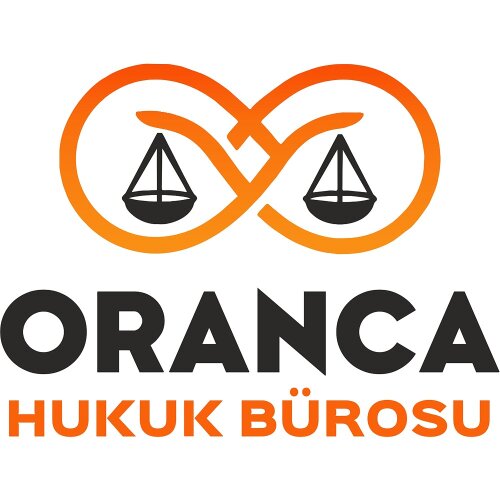Best Information Technology Lawyers in Turkey
Share your needs with us, get contacted by law firms.
Free. Takes 2 min.
Or refine your search by selecting a city:
List of the best lawyers in Turkey
About Information Technology Law in Turkey
Information Technology (IT) law in Turkey is an evolving field, reflecting the rapid growth and integration of digital technologies and the internet into everyday life. IT law encompasses various legal areas including data protection, e-commerce, cybersecurity, intellectual property, and digital communications. As Turkey aims to position itself as a leader in digital innovation, the government has introduced several regulations to govern these areas, ensuring the secure and efficient use of technology.
Why You May Need a Lawyer
There are several common situations where you might require legal assistance in the realm of Information Technology:
- Data Protection: With the enforcement of the Turkish Personal Data Protection Law (KVKK), businesses and individuals need to comply with strict data protection standards. Legal guidance can assist in ensuring compliance and avoiding penalties.
- Intellectual Property: Whether it's software development or content creation, protecting your intellectual property rights is crucial in the digital world.
- Cybersecurity Incidents: In the event of data breaches or cyberattacks, legal help is often needed to handle liabilities and reporting requirements.
- E-commerce Regulation: As online business continues to grow, understanding e-commerce laws and regulations is essential for successful operations.
- Contract Negotiation: Drafting and negotiating IT contracts, licenses, and service agreements often require the expertise of a lawyer to ensure legal soundness and fairness.
Local Laws Overview
The legal landscape surrounding IT in Turkey can be complex. Key aspects include:
- Personal Data Protection Law (KVKK): This law is the backbone of data protection legislation in Turkey, providing guidelines on the processing and protection of personal data.
- Electronic Communications Law: Regulates electronic communications infrastructure and services, ensuring security and privacy.
- E-commerce Law: Establishes the legal framework for electronic commerce, covering consumer rights, service provider responsibilities, and more.
- Cybercrime Legislation: Encompasses crimes such as unauthorized access, data alteration, and cyber-espionage.
- Intellectual Property Laws: Protects software, trademarks, and other digital content under both copyright and patent law principles.
Frequently Asked Questions
What is the primary law governing data protection in Turkey?
The primary law governing data protection in Turkey is the Personal Data Protection Law (KVKK), which aligns closely with the EU's General Data Protection Regulation (GDPR).
Do I need to register my software in Turkey to protect my intellectual property rights?
While registration isn't mandatory for copyright protection, it can often provide additional legal benefits. For patent protection, an application must be filed and registered with the Turkish Patent and Trademark Office.
What should I do if my company experiences a data breach?
In the event of a data breach, it's essential to inform the Personal Data Protection Authority and affected individuals promptly, as per KVKK requirements. Legal advice can help you navigate this process while minimizing liabilities.
Are there restrictions on transferring data outside of Turkey?
Yes, transferring personal data outside of Turkey is subject to specific conditions under KVKK, especially regarding ensuring data protection standards are met in the receiving country.
How does Turkey regulate online businesses?
The E-commerce Law regulates online businesses, focusing on consumer rights, electronic contracts, and obligations of service providers to ensure security and transparency.
Can I conduct business electronically without a physical presence in Turkey?
Yes, you can conduct business electronically, but there are specific tax obligations and e-commerce regulations that must be adhered to. Legal advice is recommended to ensure compliance.
What activities are considered cybercrime in Turkey?
Cybercrimes in Turkey include unauthorized system access, data alteration or destruction, and activities that disrupt network operations, among others, as regulated under the Turkish Penal Code.
Is social media content protected by Turkish intellectual property laws?
Yes, social media content can be protected under intellectual property laws if it exhibits originality and creativity. Legal consultation is valuable for understanding specific rights and protections.
How does Turkey enforce e-contracts?
E-contracts are generally enforceable in Turkey, provided they meet traditional contract requirements. The E-commerce Law stipulates additional conditions for electronic confirmations and communications.
What penalties exist for non-compliance with IT regulations in Turkey?
Non-compliance can result in administrative fines, civil liabilities, and, in certain cases, criminal charges. Penalties vary depending on the violation type and severity.
Additional Resources
For those seeking additional information or support, consider reaching out to the following resources:
- Turkish Personal Data Protection Authority (KVKK): Provides guidance on data protection laws and compliance.
- Ministry of Industry and Technology: Offers resources and information relevant to the IT sector.
- TÜBİTAK: The Scientific and Technological Research Council of Turkey, which can be a source of innovation and technology policy insights.
- Information Technologies and Communications Authority (BTK): Regulates electronic communications and infrastructure.
Next Steps
If you believe you require legal assistance in the field of Information Technology in Turkey, consider the following steps:
- Identify Your Needs: Determine the specific area of IT law for which you need advice or representation.
- Seek Professional Assistance: Reach out to a lawyer or law firm specializing in IT law. Look for professionals with experience in the area pertinent to your case.
- Prepare Necessary Information: Gather all related documents and information to ensure an efficient and productive consultation.
- Stay Informed: Keep abreast of current laws and regulations in Turkey that may affect your situation or sector.
Lawzana helps you find the best lawyers and law firms in Turkey through a curated and pre-screened list of qualified legal professionals. Our platform offers rankings and detailed profiles of attorneys and law firms, allowing you to compare based on practice areas, including Information Technology, experience, and client feedback.
Each profile includes a description of the firm's areas of practice, client reviews, team members and partners, year of establishment, spoken languages, office locations, contact information, social media presence, and any published articles or resources. Most firms on our platform speak English and are experienced in both local and international legal matters.
Get a quote from top-rated law firms in Turkey — quickly, securely, and without unnecessary hassle.
Disclaimer:
The information provided on this page is for general informational purposes only and does not constitute legal advice. While we strive to ensure the accuracy and relevance of the content, legal information may change over time, and interpretations of the law can vary. You should always consult with a qualified legal professional for advice specific to your situation.
We disclaim all liability for actions taken or not taken based on the content of this page. If you believe any information is incorrect or outdated, please contact us, and we will review and update it where appropriate.
Browse information technology law firms by city in Turkey
Refine your search by selecting a city.















